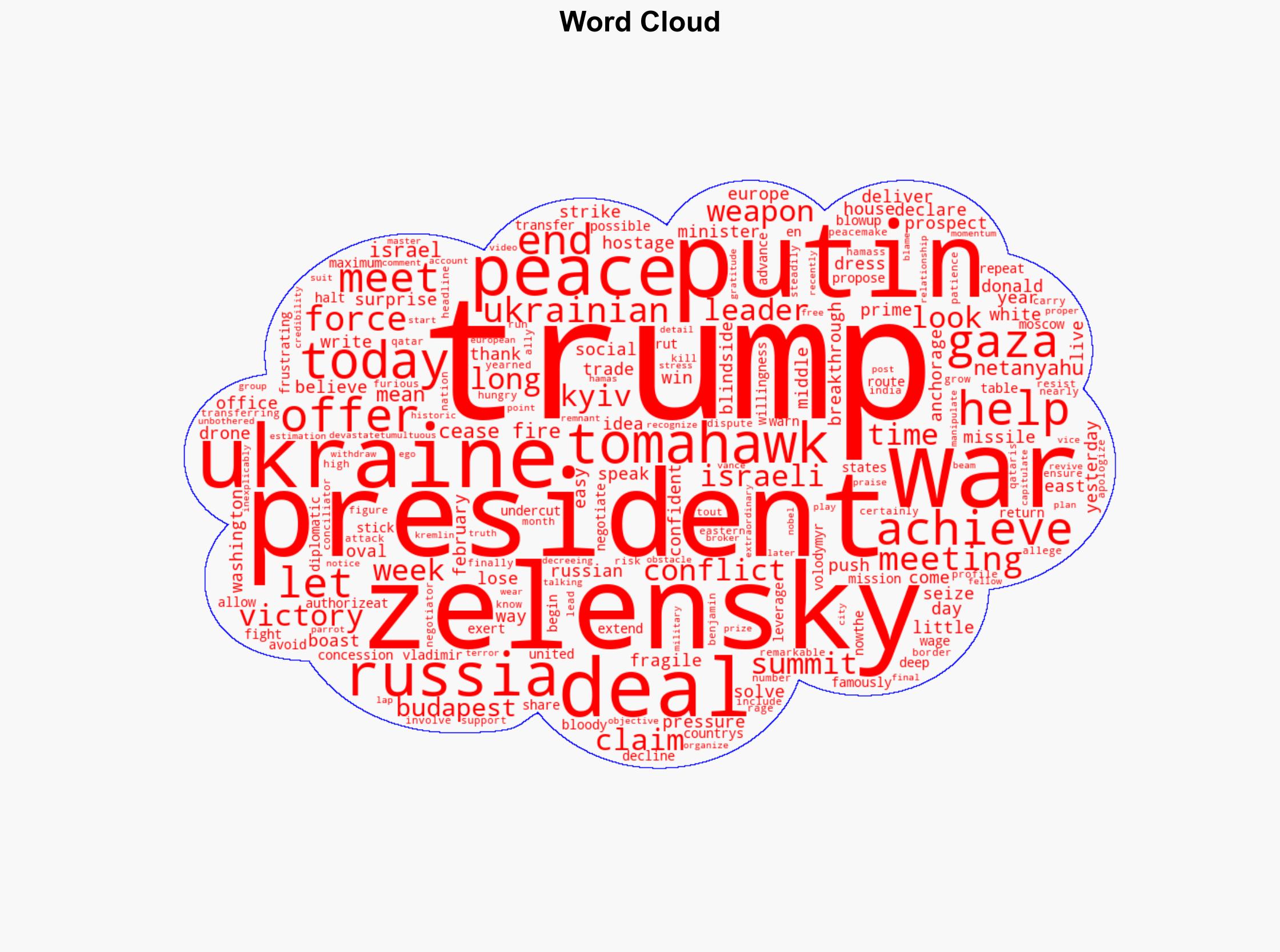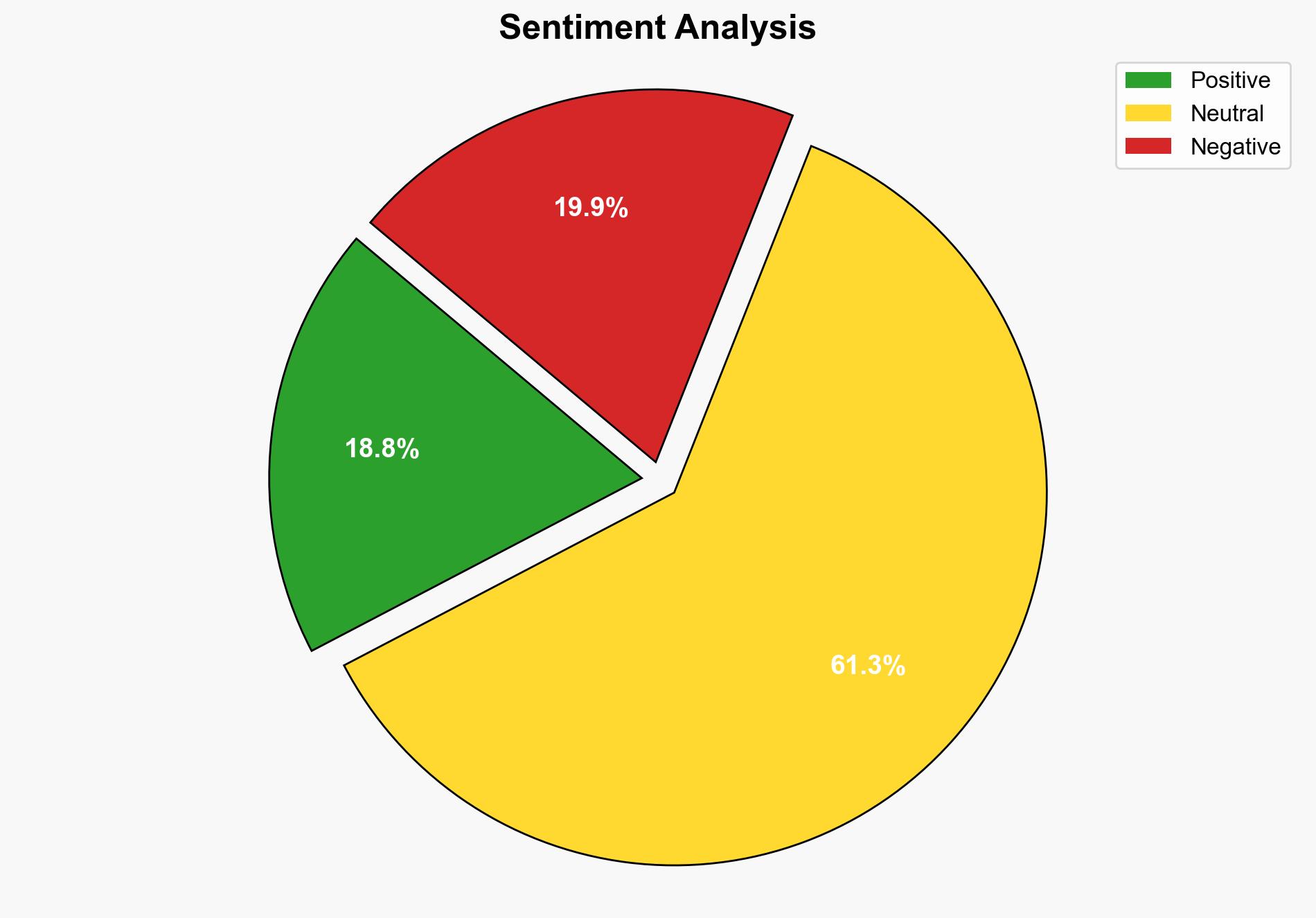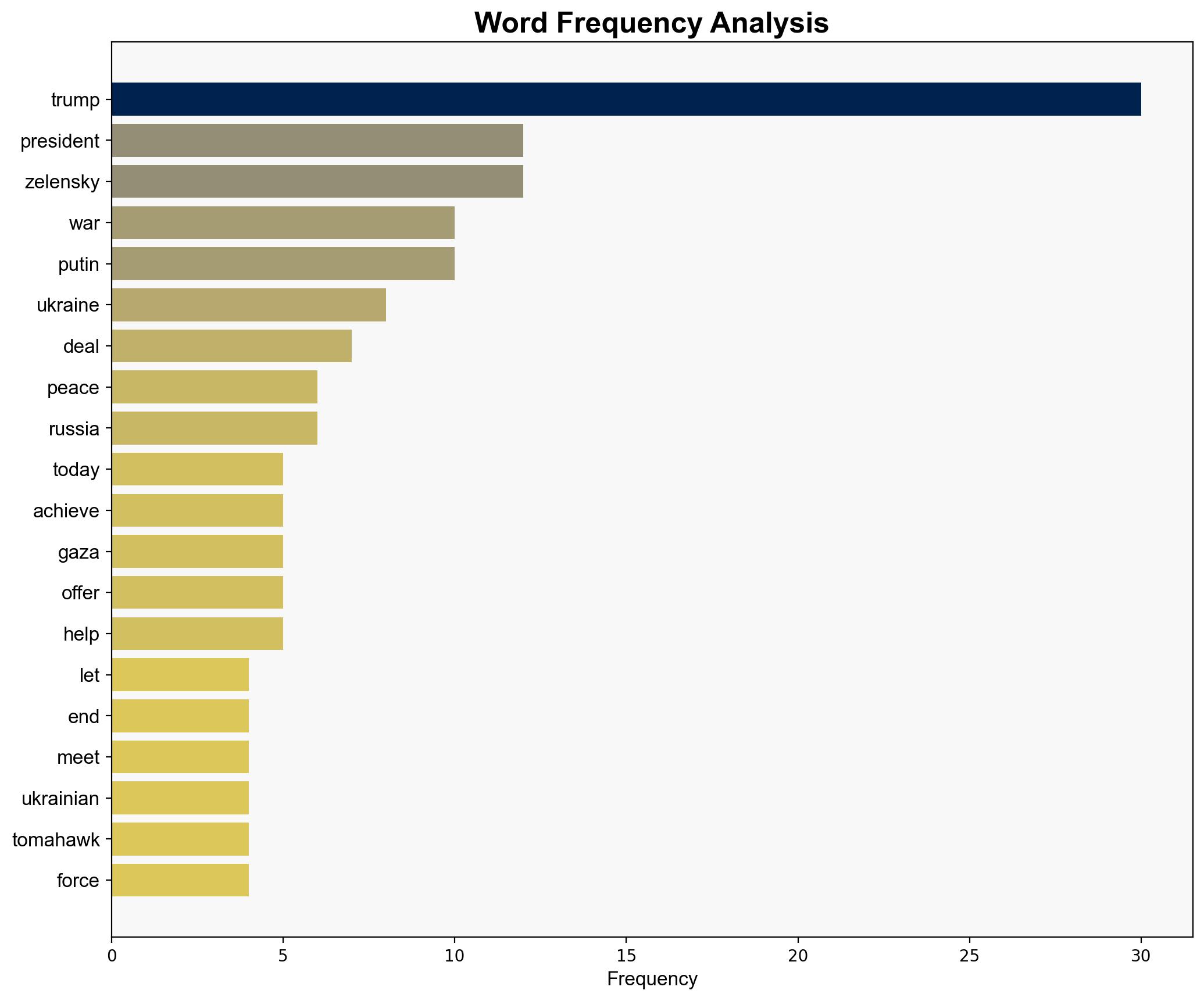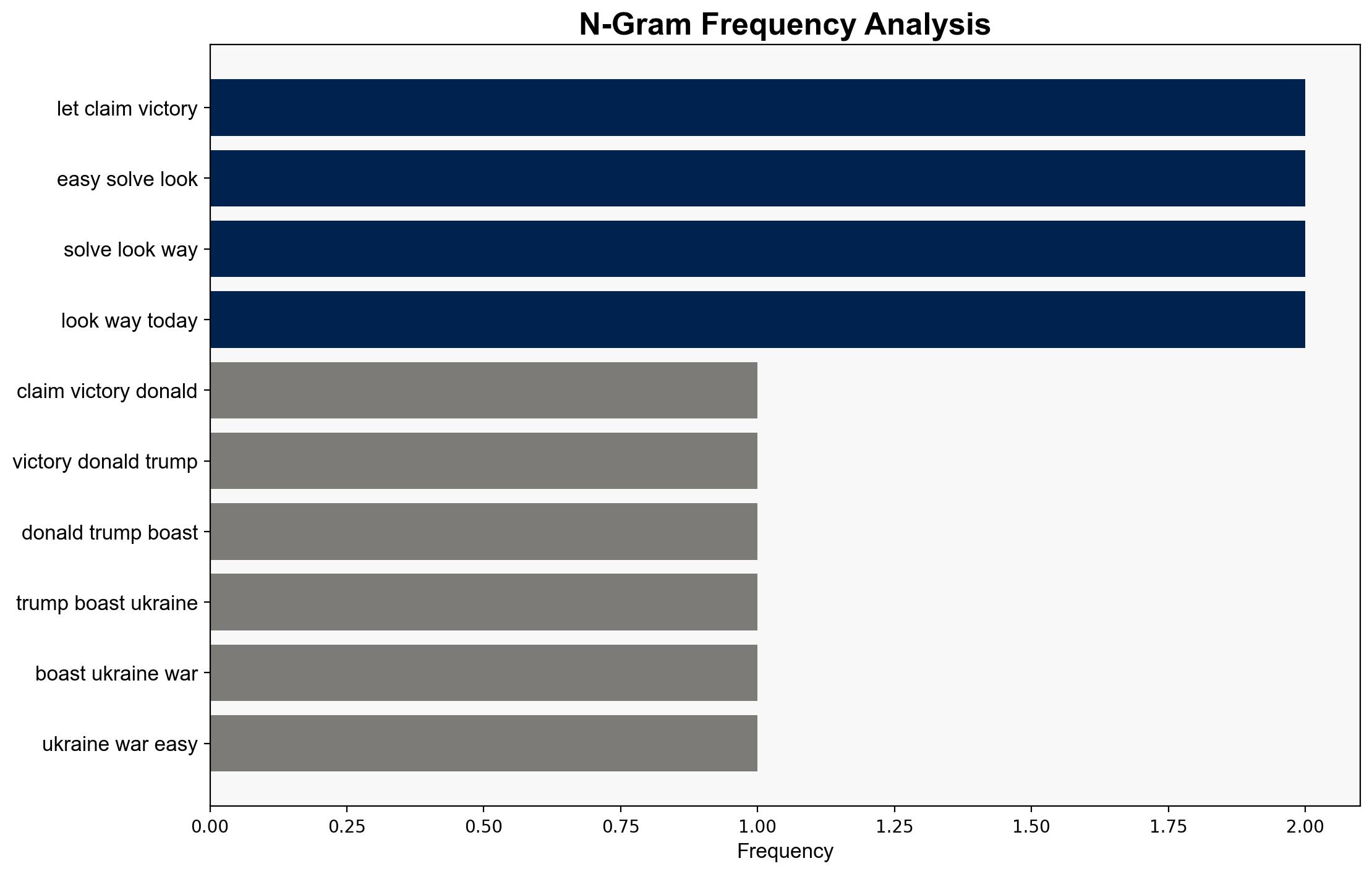Trump’s Next Potential Deal Ukraine – The Atlantic
Published on: 2025-10-18
Intelligence Report: Trump’s Next Potential Deal Ukraine – The Atlantic
1. BLUF (Bottom Line Up Front)
The analysis suggests that Donald Trump’s potential involvement in negotiating a peace deal in Ukraine is fraught with complexities and uncertainties. The most supported hypothesis is that Trump’s actions are primarily driven by personal and political gain rather than a genuine commitment to resolving the conflict. Confidence in this assessment is moderate due to the lack of clear evidence of Trump’s strategic intentions. Recommended action includes monitoring Trump’s engagements with key players like Vladimir Putin and Volodymyr Zelensky for shifts in diplomatic stances and preparing for potential geopolitical shifts.
2. Competing Hypotheses
1. **Hypothesis A**: Trump is genuinely committed to brokering a peace deal in Ukraine to enhance his legacy as a peacemaker. This hypothesis is supported by his past claims of resolving conflicts and recent diplomatic engagements.
2. **Hypothesis B**: Trump’s involvement is primarily driven by personal and political motivations, using the peace deal as a platform to boost his image and leverage for future negotiations. This is supported by his history of prioritizing personal gain and the strategic use of high-profile summits.
Using ACH 2.0, Hypothesis B is better supported due to Trump’s pattern of using international diplomacy for personal accolades and his inconsistent stance on military support for Ukraine.
3. Key Assumptions and Red Flags
– **Assumptions**: It is assumed that Trump’s diplomatic efforts are sincere and that he has the capacity to influence key stakeholders like Putin and Zelensky.
– **Red Flags**: Trump’s history of erratic foreign policy decisions and his tendency to prioritize personal gain over strategic interests raise concerns about the authenticity of his intentions.
– **Blind Spots**: Lack of transparent communication from Trump and his team regarding specific strategies and objectives in Ukraine.
4. Implications and Strategic Risks
– **Geopolitical Risks**: Trump’s involvement could destabilize existing diplomatic efforts and lead to increased tensions between Russia and Ukraine.
– **Economic Risks**: Potential sanctions or economic measures could be influenced by Trump’s negotiations, impacting global markets.
– **Psychological Risks**: Trump’s unpredictable behavior may cause uncertainty among allies and adversaries, affecting international relations.
5. Recommendations and Outlook
- Monitor Trump’s interactions with key figures like Putin and Zelensky for changes in diplomatic strategies.
- Prepare contingency plans for potential escalation in Eastern Europe.
- Engage with international partners to ensure a unified approach to any shifts in the Ukraine conflict.
- Scenario Projections:
- Best Case: Successful peace deal leading to a stable ceasefire.
- Worst Case: Breakdown of negotiations resulting in intensified conflict.
- Most Likely: Continued diplomatic stalemate with intermittent progress.
6. Key Individuals and Entities
– Donald Trump
– Vladimir Putin
– Volodymyr Zelensky
– Benjamin Netanyahu
7. Thematic Tags
national security threats, geopolitical strategy, diplomatic negotiations, regional focus




